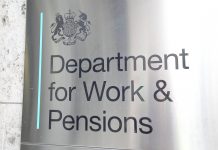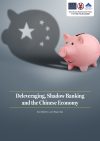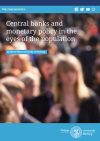Global financial exclusion rates are on the rise thanks to the COVID-19 crisis. Matt Adam, chief executive, We Are Digital, outlines five ways we can solve the world’s money troubles as we head back into lockdown
Reading the news, with its reports of bank branches and ATM closures in the post-COVID-19 exodus to contactless and online payments, you could be forgiven for thinking cash was dead, a terminal casualty of the current crisis. As COVID-19 raged, various retail outlets, responding to reports that the virus could be transmitted through handling money, quickly put up “no cash” signs, cutting off millions of shoppers worldwide from access to essential goods. Bank branches across the world, unwilling to pay high street rent to serve a dwindling number of customers, closed down.
In Australia, open ATMs are at their lowest number in 12 years (Australian Payments Network), leaving 2.5 million elderly Australians without easy access to cash. The chief executive of the UK’s largest cash machine network Link has warned that cash machines could be gone within two to three years.
But as we head back into government-imposed lockdowns across the globe, the move to digital-only payments will cause distress and anxiety for some – especially those for whom contactless payment is not an option. Indeed, in 2017, the Bank for International Settlements (BIS) found that 10% of Europeans don’t have a bank account; Italy is home to the highest rate of financial exclusion at 16%. For the world’s poorest, online banking is a huge stumbling block which keeps millions in poverty. The world’s ‘unbanked’ are charged much higher fees for basic transactions, while their access to other financial products and services like savings accounts, insurance and pensions is often limited.
The pandemic will continue to highlight this significant social issue. Globally, regardless of COVID-19, those who are unable to embrace a move to cashless risk being left behind and stuck in the poverty premium of financial exclusion. Research from the Personal Finance Research Centre at the University of Bristol suggests this costs the average low-income household £490 each year in the UK. For more than one in ten of these households, this figure rises to an incredible £780.
A survey of more than 7,000 conducted by the Financial Conduct Authority (FCA) during the pandemic found that 12 million people in the UK had low financial resilience, meaning they may struggle with bills or loan repayments. Two million of these have entered low levels of financial resilience since February 2020.
There are potential solutions and routes out of poverty for the ‘unbanked’ and financially excluded open to both governments and the financial sector – provided we are committed to solving the problem.
Start by acknowledging the full societal impact of the problem, which is associated with poor levels of both mental and physical health and wellbeing and low quality of life. Financial exclusion is not just the preserve of the elderly, vulnerable or poor. In the UK, one in four adults will experience financial exclusion at least once in their lives (The Inclusion Foundation).
Don’t just close down ATMs
Ensure cash reserves for the older, vulnerable and otherwise digitally excluded are available in selected branches or ATMs, something that Sweden has prioritised as it lays out plans for the e-krona. In Britain, the Financial Conduct Authority warned banks in July that they must protect consumers’ access to cash, providing alternative ATM services for elderly and vulnerable customers elsewhere if they close further branches. These services will be phased out eventually as more and more people are trained to use mobile and internet banking and contactless payments. But there is more work to do before this can become a reality.
Training
Community investment must be at the heart of any financial training or fintech programme. A joined-up approach pooling both financial sector resources and government support is essential, in which banks work with government to outline a digital exclusion road map, articulating support and provision for vulnerable, elderly and poorer customers.
Training across all the areas touched by financial exclusion – online banking tuition, debt management and advice, provision of a wider range of financial products and services – is an accessible, pandemic-proof, measurable route out of poverty for the world’s financially excluded. Over the course of COVID-19, we have worked with banking and corporate clients to ensure the UK’s most financially excluded gain the financial understanding and digital skills they need to stay on top of their finances, including helping them to access online banking services. We’ve seen first-hand how critical financial inclusion is to maintaining quality of life and the benefits of free and practical support.
Appoint a minister for financial inclusion
In Britain, a parliamentary Select Committee on Financial Exclusion (March 2017) called for the appointment of a minister responsible for financial exclusion to champion the rights of Britain’s financially excluded and to campaign for both recognition and change. We believe it’s time such an idea was seriously considered in the UK and even globally, considering the scale of the issue.
Improved mental health, higher quality of life, better physical health and wellbeing are all outcomes of improved levels of financial inclusion. Educating the financially excluded on what so many take for granted as the basics of life truly is an opportunity for societal and economic change none of us should allow to fall by the wayside.
Editor's Recommended Articles
-
Must Read >> What is the cost of COVID-19 in the UK?
-
Must Read >> EU citizens place economic situation as top concern
-
Must Read >> Protecting your pension pot, post-COVID 19

































